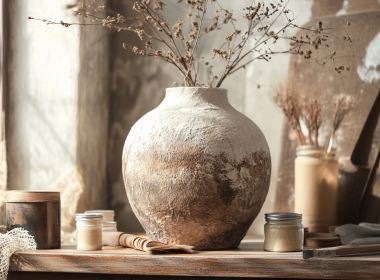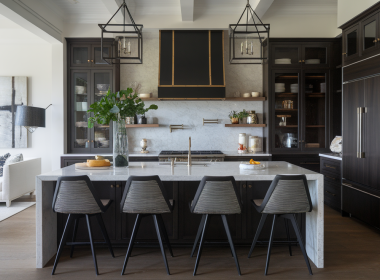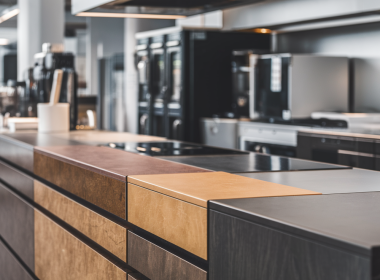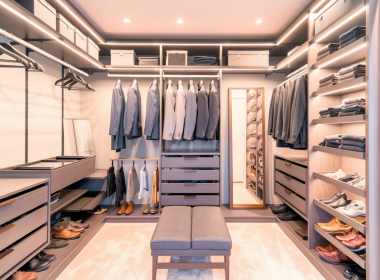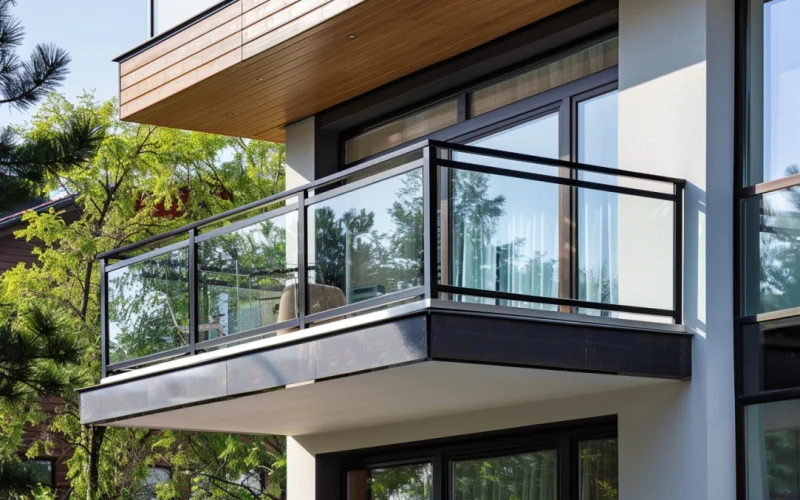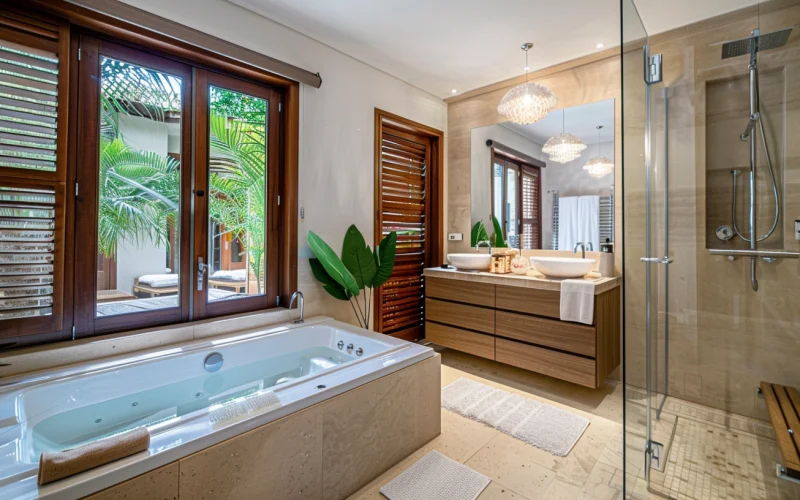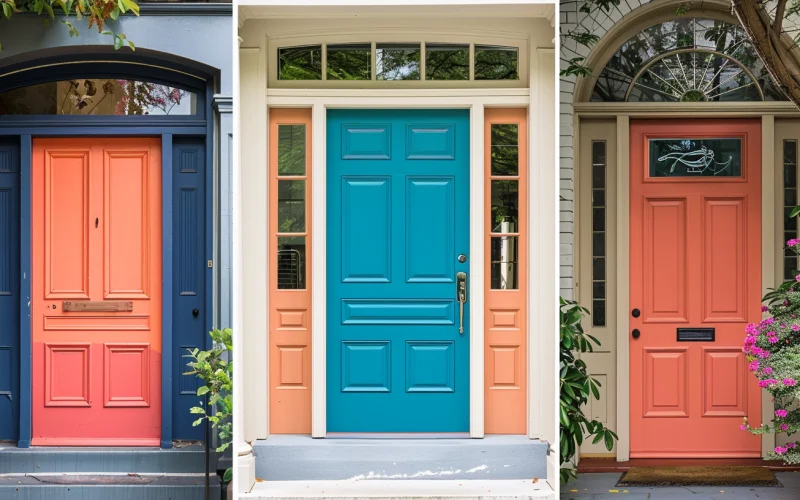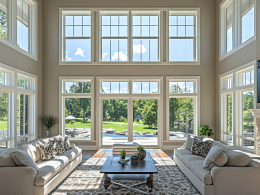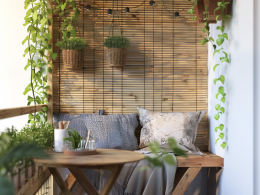Many homeowners must create a private and comfortable outdoor space, especially those in urban areas or close-knit neighborhoods.
One of the most effective ways to achieve this is by covering your balcony with the right material.
With numerous options available, it can be challenging to determine the best choice for your specific needs and preferences.
In this blog post, we’ll explore various balcony privacy ideas and discuss the best materials for covering your balcony, considering factors such as durability, privacy, shade, and visual appeal.
Whether you want to create a cozy retreat or enjoy your outdoor space without feeling exposed, we’ll help you select the perfect balcony covering material to suit your requirements and enhance your outdoor living experience.
1. Bamboo Screens
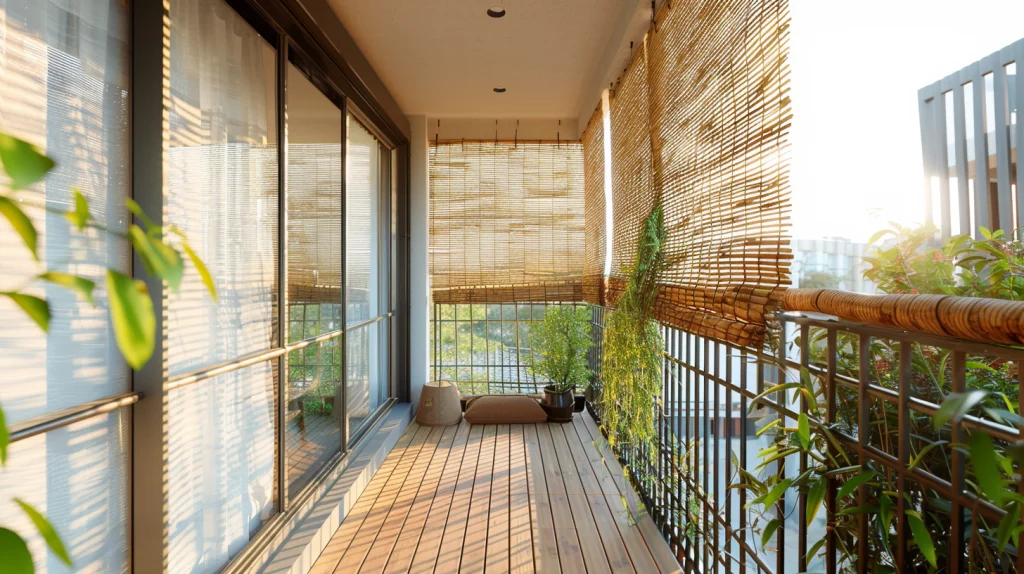
Bamboo screens are an eco-friendly and durable option for covering your balcony.
This natural material is sustainable and provides excellent privacy and shade.
Bamboo screens allow some light and air to pass through while obscuring the outside view, creating a serene and secluded atmosphere.
Bamboo’s organic texture and warm tones add a touch of visual appeal to your balcony, making it a versatile choice for various design styles.
Additionally, bamboo screens are relatively easy to install and maintain, making them a practical choice for homeowners seeking an effective, attractive balcony covering solution.
2. Outdoor Curtains
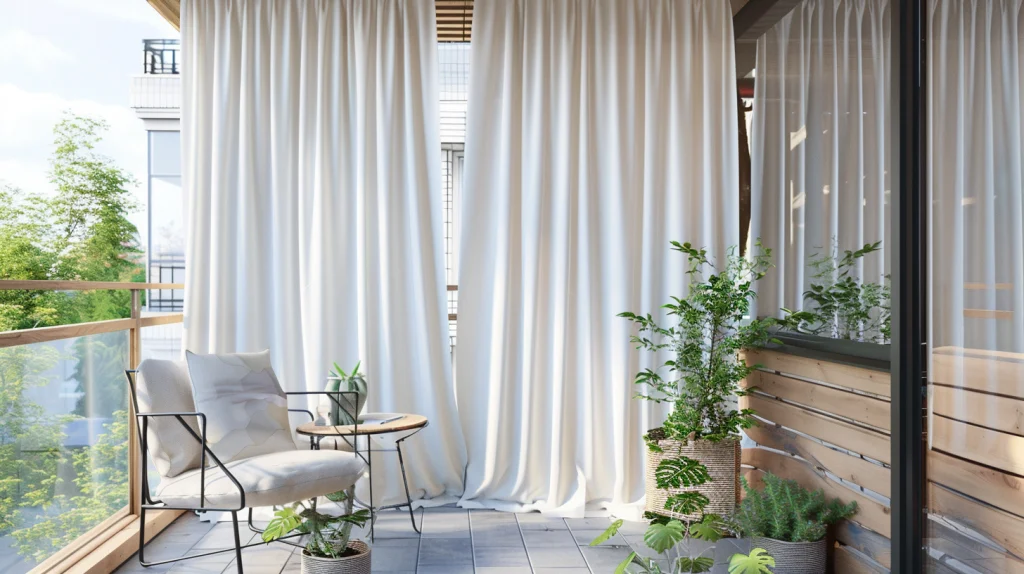
Outdoor curtains are another popular choice for balcony privacy.
Made from weather-resistant materials like polyester or acrylic, these curtains can withstand the elements while providing a simple and effective way to control privacy and shade.
The ease of installation is a significant advantage, as curtains can be hung using rods or tracks without requiring extensive modifications to your balcony structure.
The wide range of colors, patterns, and textures allows you to choose curtains that complement your outdoor decor and personal style.
Whether you prefer solid colors or bold prints, outdoor curtains offer a flexible and attractive solution for creating a private and inviting balcony space.
3. Alumawood
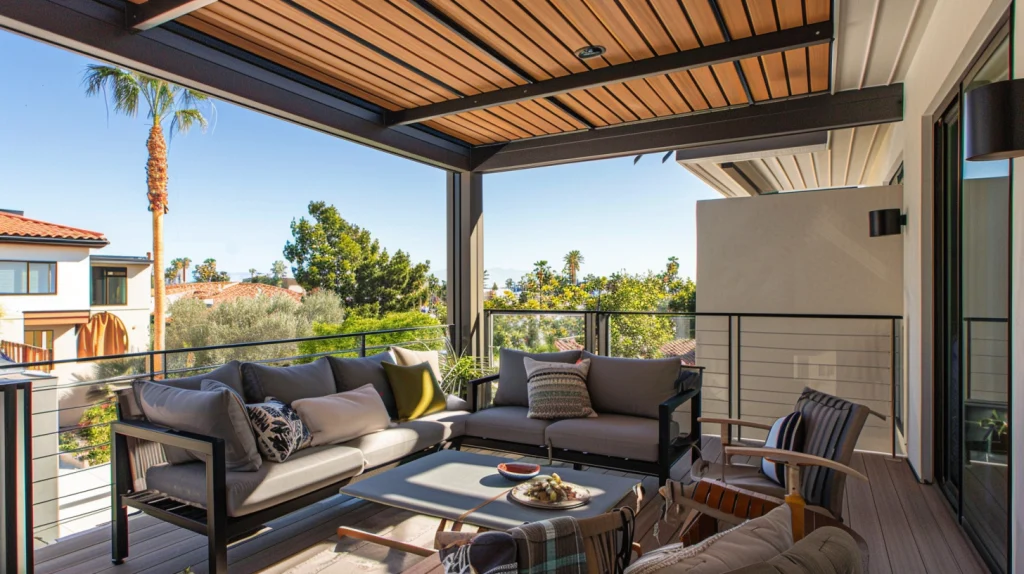
For a more permanent and low-maintenance balcony covering option, consider Alumawood.
This innovative material combines the look of natural wood with the durability and weather resistance of aluminum.
Alumawood provides excellent privacy and shade, making it an ideal choice for homeowners seeking a long-lasting solution.
Unlike real wood, Alumawood doesn’t rot, warp, or attract insects, ensuring that your balcony covering remains in excellent condition for years.
The wood-like appearance adds a touch of warmth and natural beauty to your outdoor space, while the aluminum construction offers unparalleled strength and stability.
With Alumawood, you can enjoy a private and stylish balcony without the hassle of regular maintenance.
4. Composite Wood
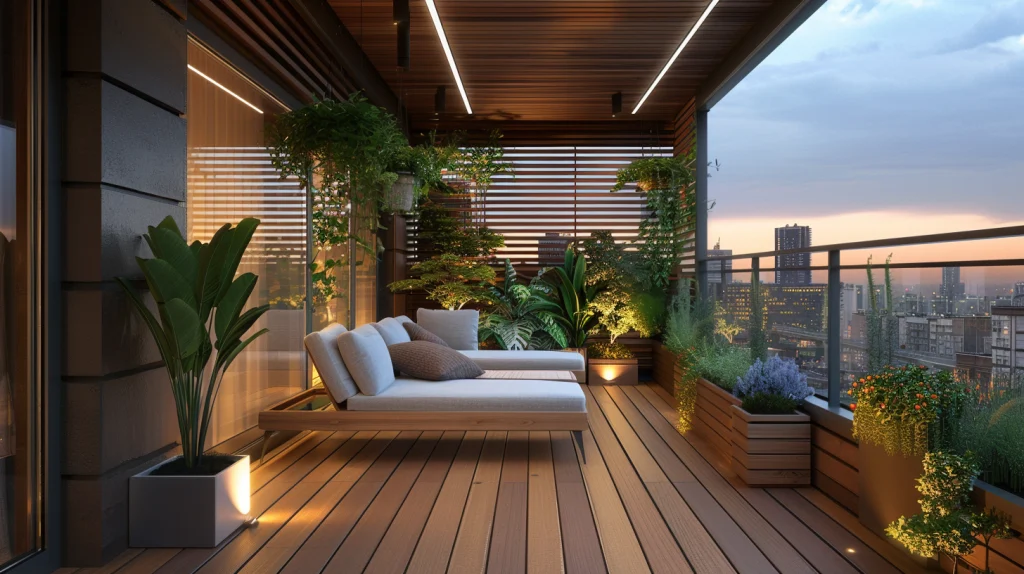
Composite wood is another low-maintenance and durable option for covering your balcony.
This material is made from wood fibers and plastic, combining natural wood’s visual appeal with synthetic materials’ resilience.
Composite wood is resistant to warping, rotting, and splitting, making it an excellent choice for outdoor use.
It closely resembles the look and feel of real wood, allowing you to create a warm and inviting atmosphere on your balcony.
Composite wood is available in various colors and finishes, enabling you to select an option that complements your exterior design.
With minimal upkeep required, composite wood is a practical and stylish choice for homeowners seeking a long-lasting balcony covering solution.
5. Tempered Glass Panels
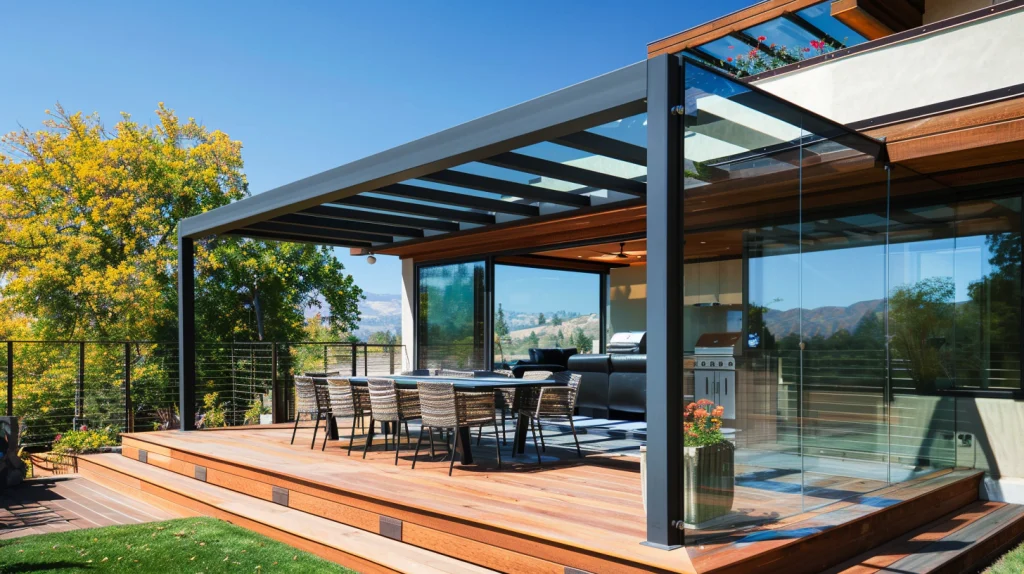
Tempered glass panels are an excellent choice for those who prefer a clear view while still enjoying some privacy and wind protection.
These sturdy glass panels provide a barrier against the elements while maintaining an unobstructed view of your surroundings.
Tempered glass is much stronger than regular glass, making it a safe and durable option for balcony coverings.
The panels also reduce noise, helping create a more peaceful outdoor environment.
Tempered glass panels are easy to clean and maintain, making them a practical and modern choice for homeowners seeking a balance between privacy and clarity.
6. Retractable Awnings
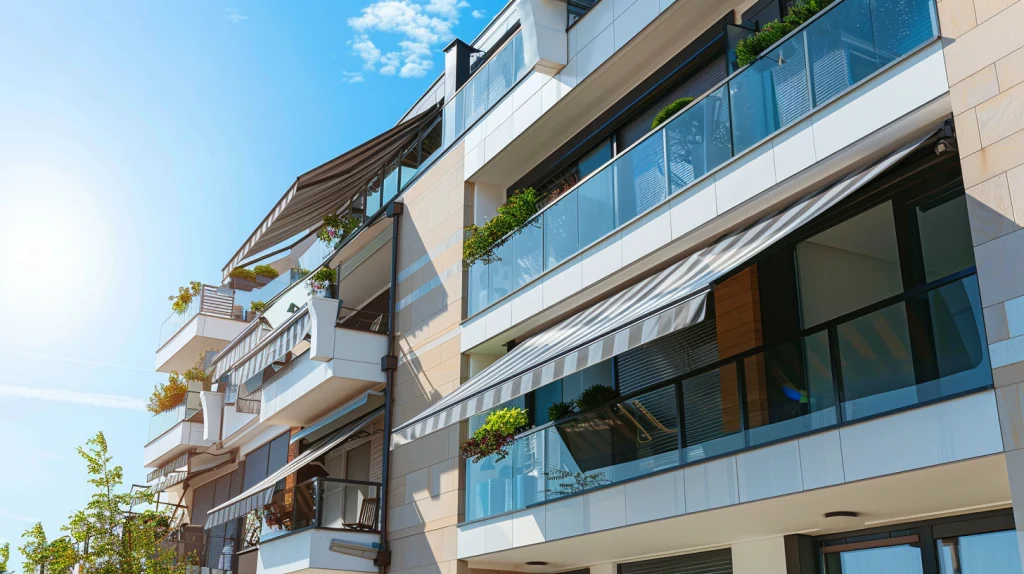
Retractable awnings offer a versatile and convenient solution for balcony privacy and shade.
These awnings can be easily extended or retracted as needed, allowing you to control the amount of sunlight and privacy on your balcony.
Available in both manual and motorized options, retractable awnings are suitable for various balcony sizes and configurations.
When not in use, the awning can be neatly tucked away, preserving the open feel of your outdoor space.
With a wide range of fabric colors and patterns available, retractable awnings can be customized to suit your personal style and complement your home’s exterior.
7. Artificial Green Walls
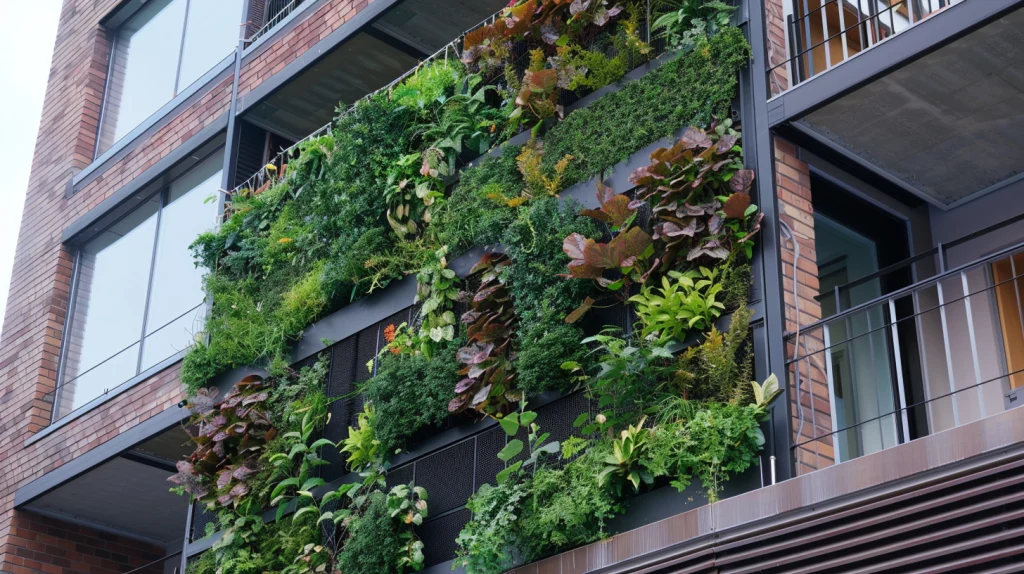
For a unique and nature-inspired balcony privacy solution, consider artificial green walls.
These synthetic plant panels mimic the look of real foliage without the maintenance requirements of living plants.
Artificial green walls provide privacy and can help reduce noise levels on your balcony, creating a serene and secluded atmosphere.
The realistic appearance of the artificial plants adds a fresh and vibrant touch to your outdoor space, while the panels’ low-maintenance nature makes them a practical choice for busy homeowners.
With various plant types and arrangements, artificial green walls offer a creative and eye-catching option for balcony privacy.
Factors to Consider When Choosing Balcony Coverings
1. Budget and Cost-Effectiveness
- Determine your available budget for the balcony covering project
- Compare the costs of different materials and options
- Consider the long-term value and durability of each choice
- Select a material that provides the best balance of quality and affordability
2. Privacy and Shade Requirements
- Assess the level of privacy you need on your balcony
- Determine the amount of shade and sun protection desired
- Consider the orientation of your balcony and the direction of sunlight
- Choose a material that offers the appropriate level of privacy and shade
3. Maintenance and Durability
- Evaluate the maintenance requirements of each balcony covering material
- Consider the durability and longevity of the options for your climate
- Assess the ease of cleaning and upkeep for each material
- Select a low-maintenance and durable option that suits your lifestyle
4. Aesthetic Preferences and Design Compatibility
- Consider your style and the overall design of your home
- Evaluate the color, texture, and pattern options available for each material
- Assess the compatibility of the balcony covering with your existing outdoor decor
- Choose a material that complements and enhances the visual appeal of your space
Conclusion
Selecting the best material for covering your balcony depends on your individual needs, preferences, and budget.
From eco-friendly bamboo screens to durable Alumawood, each option offers unique benefits and features that cater to different priorities.
Outdoor curtains provide a simple and flexible solution, while composite wood and tempered glass panels balance style and functionality.
Retractable awnings and artificial green walls add a touch of versatility and creativity to your balcony privacy ideas.
Ultimately, the key to creating a comfortable and inviting outdoor space is to carefully consider your specific requirements and choose a balcony covering material that aligns with your goals.
Doing so transforms your balcony into a private and enjoyable retreat where you can relax, unwind, and make the most of your outdoor living experience.

